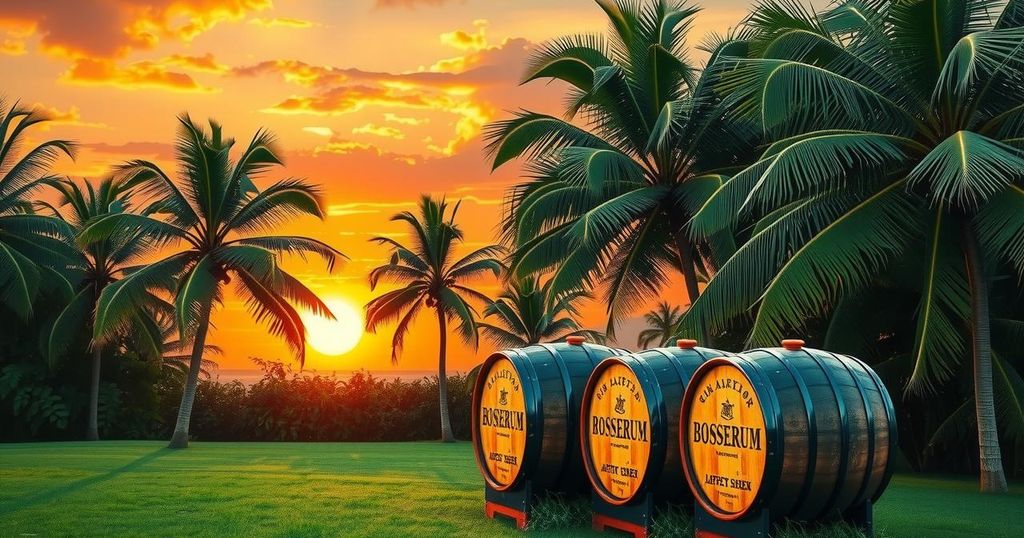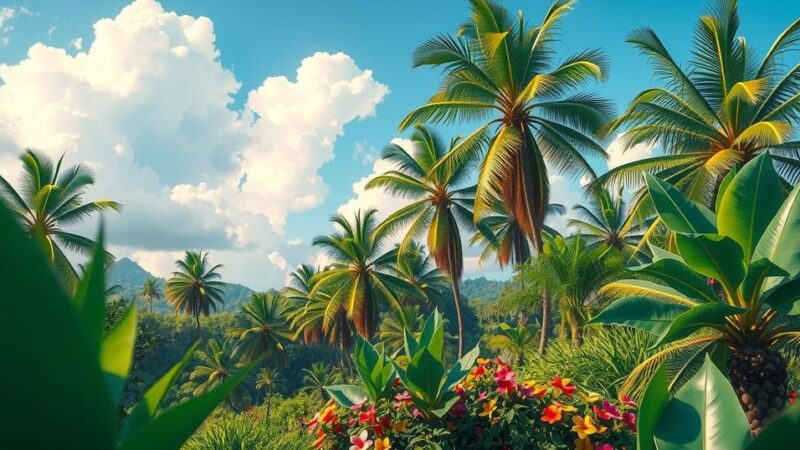A dispute over the legal definition of Jamaican rum has emerged, focusing on aging practices. The Spirits Pool Association advocates for a geographical indication amendment prohibiting overseas aging, citing cultural integrity. National Rums of Jamaica opposes this amendment, claiming it threatens their business model. The case reflects broader tensions in the Caribbean over product authenticity and market protection.
Jamaican rum holds significant cultural importance, prompting ongoing legal disputes over its definition. Producers are advocating for stricter regulations determining what can be labeled as “Jamaica rum.” In October 2022, the Jamaican Intellectual Property Office (JIPO) amended the geographical indication (GI) designation, prohibiting overseas aging of rum, an initiative propelled by the Spirits Pool Association (SPA) representing six distilleries.
The SPA contends that reinforcement of the GI designation is essential for international recognition and protection in major markets such as the EU and the US. They argue that such measures will establish Jamaican rum as a premium product, manufactured under stringent standards in its geographic location. However, the amendment has triggered dissent within the industry, notably from National Rums of Jamaica (NRJ), which claims that the new rules could jeopardize its operations.
NRJ, a company with significant holdings in production, including Long Pond and most of Clarendon, maintains that rum aged outside of Jamaica should still be classified as Jamaican rum, asserting that this practice has historical precedent. Following the JIPO’s amendment, NRJ is set to appeal against the decision, with a hearing scheduled for 28 April. The SPA insists that age should occur in Jamaica to preserve the authenticity of the product.
Christopher Gentles, the general manager of SPA, emphasizes that the adventure of aging rum overseas compromises its originality. Furthermore, the association argues that exporting rum for overseas aging deprives Jamaica of potential economic benefits, including tourism associated with local rum production. NRJ and its associated companies have chosen not to provide comments on the matter.
According to Professor Dev Gangjee from the University of Oxford, geographical indications create distinctiveness for products, often resulting in price premiums and protecting regional identities. Such indications also promote local economies, as seen in successful cases like Scotch whisky and champagne. The situation in Barbados, which lacks a GI for its rum despite four distilleries agreeing on proposed regulations, mirrors that of Jamaica, highlighting the complexities of geographical indications in the Caribbean.
In Jamaica, the SPA aspires for the rum to achieve EU Protected Geographical Indication classification following the conclusion of legal processes. Finding common ground is crucial; Gentles acknowledges the need for cooperation, even in the absence of a perfect resolution. All parties involved recognize the deep connection between Jamaican rum and the island’s cultural heritage, as highlighted by the local press advocating for the integrity of the Jamaican brand against foreign influence.
This situation reflects a broader tension within the Caribbean, as nations seek to protect their traditional products while navigating modern market demands.
The ongoing legal conflict surrounding Jamaican rum centers on defining its authenticity and production standards, particularly regarding aging practices. The Spirits Pool Association pushes for stricter regulations to strengthen the geographical indication designation, emphasizing Jamaica’s unique cultural identity tied to rum. Conversely, National Rums of Jamaica argues for the validity of overseas aging, suggesting it has historical roots. Ultimately, both parties must seek a compromise to ensure the future integrity and recognition of Jamaican rum in the global market.
Original Source: www.bbc.com






